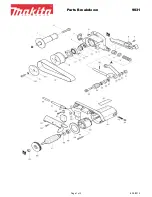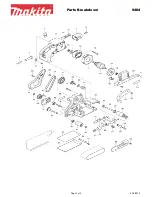
11
Hints
5. Before lifting the machine off the surface turn it off.
6. After the polishing agent has been applied to the surface, remove the coarse
bonnet and equip the device with the soft, woollen bonnet.
7. Start to buff the surface out in the same place where you started to apply the
polishing agent. Continue until the entire surface has been buffed out.
8. Always keep the ventilation slots clean.
9. Wash the polishing bonnets after each use. Preferably wash the bonnets by
hand and allow drying on fresh air.
10. If you do not intend to use the machine for some time, remove the bonnet and
store the machine with the pad holder up.
Hints
Do not use the machine in one place for too long, this may damage the
surface.
Some hard to reach areas may require polishing by hand.
Make sure the bonnet and the pad holder are clean and free from any kind of
dirt. Dirt of any kind will lead to scratches in the surface. Both bonnets can be
washed at 40°C by hand.
You can order replacement bonnets under the article no. 53 89 67 from
Westfalia.
Some Notes on Restoring Car Finishes
Abrasive polishing agents (with abrasive particles)
Abrasives agents should only be used on heavily weathered finishes, because
they contain very coarse particles.
Polishes (with mild abrasives)
Polishes are offered in a wide range of varieties, e.g. fresh finishes or finishes
in various degrees of weathering or products combined with wax.
Both products should not be used too often, because the surfaces are eroded
every time the products are used. The topcoat of modern cars is only 0.04 to
0.06 mm thick.
Always polish larger surfaces in sections of about one square metre. Use the
coarse bonnet to apply the polishing agent and then use the soft bonnet to
buff out the surface.




































